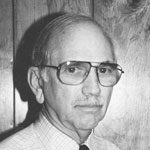
The following column was published four years ago almost to this date. It is just as timely now as then because it concerns presidential politics during an election year. It tells of a movement then that sought to put into perspective just what voters should consider when they vote for president. It follows:
This year being a presidential political year, we will hear and see a lot of nonsense on the tube and in the newspapers of our land. Sound bites intended to inflame, impress and ridicule will take over a lot of the political rhetoric.
And there will be pressure groups looking after their own selfish interest and trying to get us to vote their way. These will seek their particular agendas, whether it be in the fields of education, organized labor, business or a myriad of other special interest.
Now, along comes a movement that plays the game but transcends the usual self-serving purposes that most political groups pursue. It is sponsored by the Catholic Church but it is truly nonreligious.
Just this past week, a meeting was held at Holy Family Community Center in Luling to lay the groundwork for promoting political responsibility in the area. The movement supports no particular candidate and is not partisan on how government should seek the movement’s objectives. But those objectives are clearly for the betterment of our society.
These are the goals
(1) Proclaiming the gospel of life
(2) Protecting the least among us.
(3) Pursuing the common good.
There appears to be nothing very specific in that. And yet it very specifically puts politics on a higher level by giving voters a positive formula by which to make their judgments and decisions.
A booklet put out in support of the movement gives some of the background of government programs which may be related to the common good. And questions are posed for voters to ask concerning them.
These are the goals which this movement wants the elected officials to seek. There are no selfish interest. They put the pressure on politicians to address those issues and how their platforms will produce those goals.
How to achieve those objectives can take many directions. And that is where the individual campaigns come in – to explain how the candidates will achieve them.
Perhaps the most important is the third one – to pursue the common good. That could be construed as including the other two.
The common good is what we want. Liberals will say that can be achieved by more government. Conservatives would prescribe less government and more dependence on the private sector.
It is up to the voters to decide which way can best achieve the purpose in each individual field. In some, government certainly can play an important part. In others, its involvement becomes a deterrent to achieving the goals we seek.
Common good puts a new focus on our outlook in politics. It takes the emphasis away from individual aspects of governmental activity. The good that government may do for one group of citizens may be not so good for others. In most cases, governmental activity costs money for everyone. So this, also, must be judged in deciding what the common good is.
The tendency nowadays is for politicians to appeal to specific groups by promising to provide their needs. If they can do this for enough specific groups, they may get a majority of the vote. Meanwhile, other groups are left out in the cold.
That is practical democracy but it is not true democracy.
Perhaps John F. Kennedy put it best when he said: “Ask not what your country can do for you. Ask what you can do for your country.”
The common good should always supersede the providing of individual needs as the goals of our society. And government should recognize that other institutions in our nation – such as businesses, churches and civic organizations – play very important parts in providing for the common good.





Be the first to comment